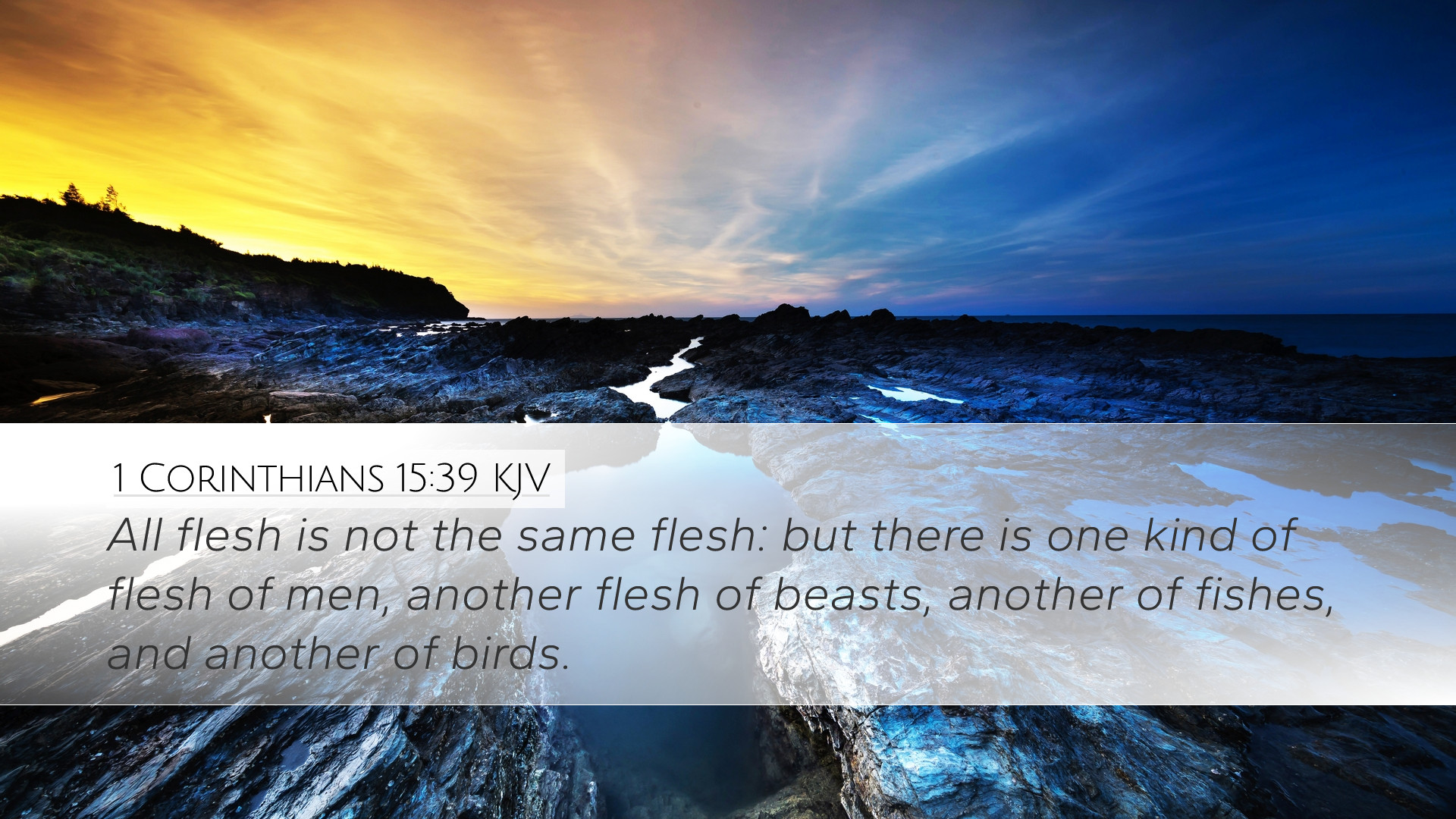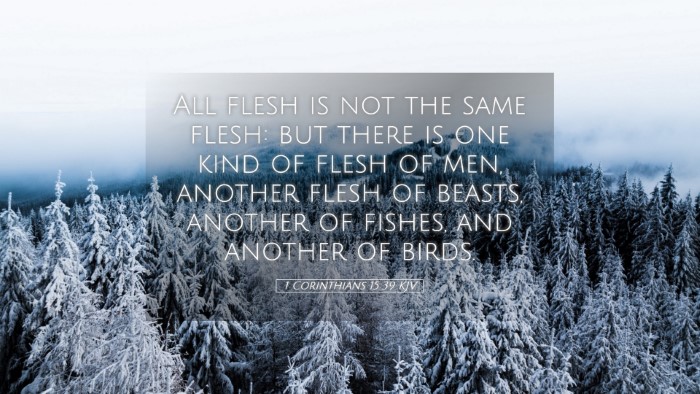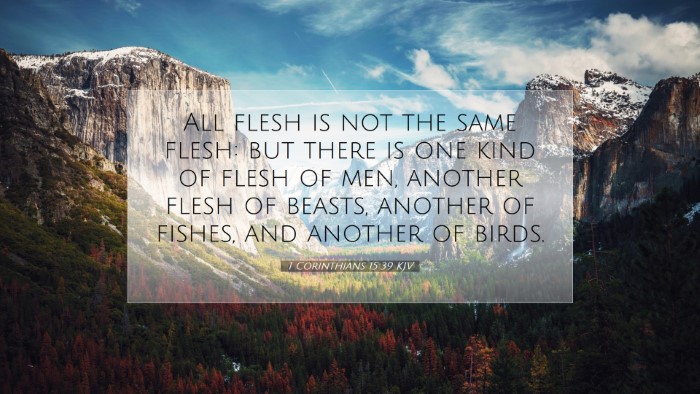Commentary on 1 Corinthians 15:39
The verse states: "All flesh is not the same flesh: but there is one kind of flesh of men, another flesh of beasts, another of fishes, and another of birds." This passage emphasizes the distinction of created life forms and serves as a starting point for deeper theological reflections on resurrection and the nature of bodily existence.
Contextual Background
The Apostle Paul, writing to the Corinthian church, addresses confusion about the resurrection. The Corinthians were influenced by philosophical beliefs that questioned the bodily resurrection of the dead. Paul counters this by illustrating the variety in God's creation.
Insights from Matthew Henry
Matthew Henry remarks on the diversity of created beings, asserting that God’s creative design is intentional and varied. He notes:
- Distinctions among Creatures: Henry highlights the importance of recognizing the different “flesh” that God has made. Each species has its purpose and place in creation, reflecting God’s wisdom.
- Theological Implications: He suggests that just as there are different kinds of flesh, so too will there be different kinds of resurrection bodies, adapted to their respective spiritual purposes.
Insights from Albert Barnes
Albert Barnes provides a thorough explanation of the nature and implications of Paul’s assertion. He posits:
- Creation's Order: Barnes points out that the variety in flesh signifies God's intentionality. The differences among men, beasts, fishes, and birds demonstrate a divine order in creation.
- Resurrection Bodies: He also emphasizes that the resurrection body will not simply be a reanimated version of the earthly body but will be distinct and suited for eternal life, similar to the variations already found in nature.
Insights from Adam Clarke
Adam Clarke offers further depth by analyzing the implications of the diversity in creation. He asserts:
- Nature of Flesh: Clarke elaborates on the composition of flesh in different species, indicating that each type is unique and serves specific functions within the ecological and divine framework.
- Spiritual Realities: He connects the diversity of flesh to the concept of the spiritual body in resurrection, suggesting that just as God diversifies physical existence, there will be comprehensive diversity in glorified bodies as per their respective roles in eternity.
Theological Themes
Within the framework of this verse, several theological themes emerge:
- Creation and Diversity: The verse encapsulates God's creativity. In His wisdom, He has created diversity, which has implications for understanding our place in the created order.
- Resurrection of the Body: A key point of Paul's argument concerns the nature of the resurrection. By drawing parallels with the different types of flesh, he suggests that resurrection bodies will also be distinct yet wonderfully made.
- God's Sovereignty: The distinctions in creation highlight God's sovereignty in design. He ordains the differences and purposes of each kind of flesh, indicating that there is order where humanity might see chaos.
Application for Pastors, Students, and Scholars
Understanding this verse is vital for several reasons:
- Encouragement in Resurrection Hope: Pastors can draw from this passage to encourage congregants about the hope of bodily resurrection and eternal life, resonating with the great diversity seen in creation.
- Studying God’s Design: Theological students can delve into the implications of creation’s diversity, exploring how it reflects God’s character and informs doctrines of creation and resurrection.
- Scholarly Debate: Bible scholars can investigate the connection between this verse and contemporary debates on physicality, the nature of existence post-death, and eschatology.
Conclusion
1 Corinthians 15:39 serves as a profound reminder of the intentional diversity in God's creation. As believers ponder over this scripture, they are called to reflect on their unique purpose within God's plan and the glorious hope of resurrection that awaits. Examining the insights from Matthew Henry, Albert Barnes, and Adam Clarke enriches our understanding of God's creative genius and the promise of transformation in the resurrection.


